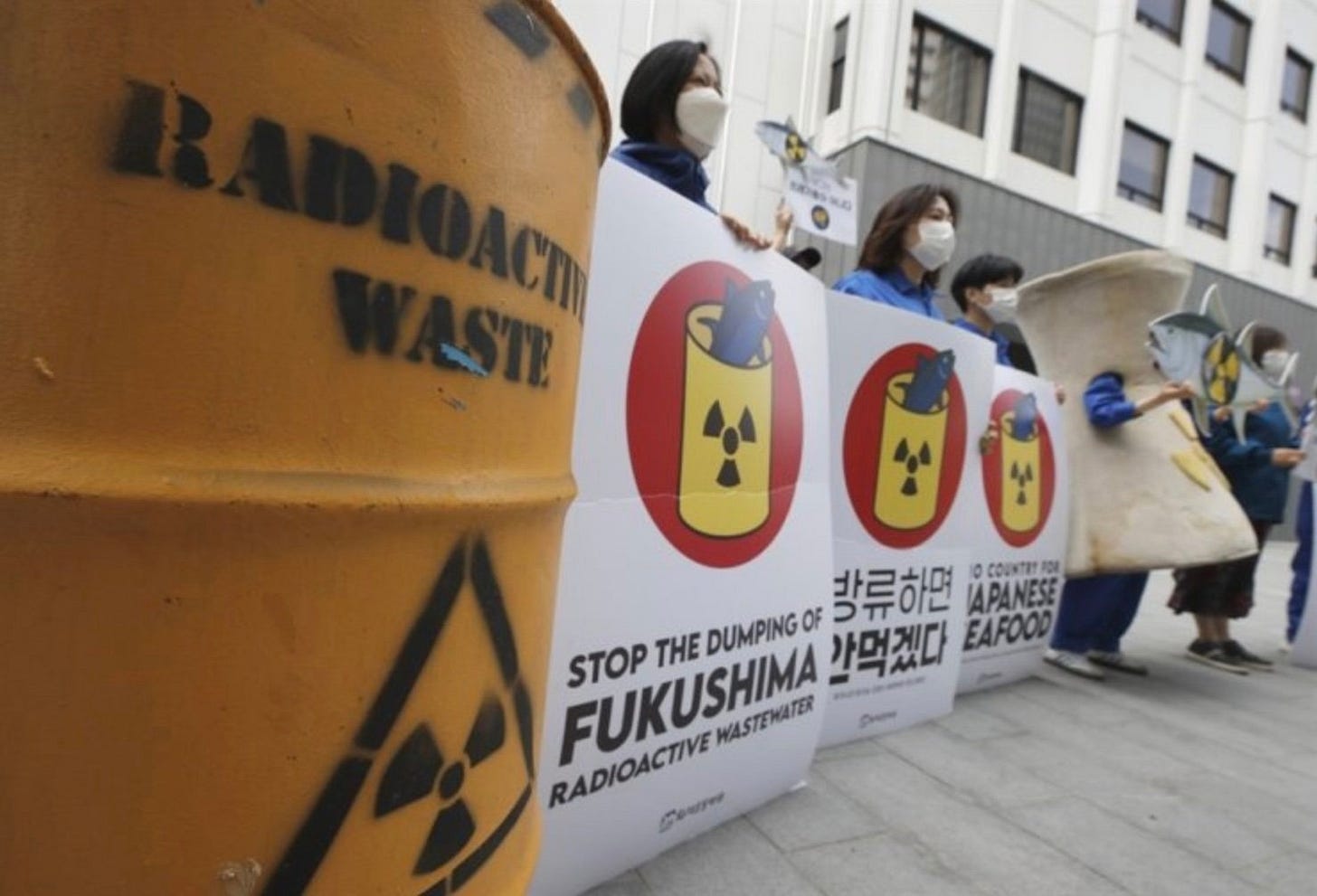Japan’s Nuclear Sewage Discharge into the Sea, the Global Tragedy Behind ‘Going against the Current’ by LIU Zhiqin
China Watchdog #84
Japan’s Nuclear Sewage Discharge into the Sea, the Global Tragedy Behind ‘Going against the Current’
Source: http://rdcy.ruc.edu.cn/zw/jszy/lzq/lzqgrzl/6b6dc35a7f3a4506a210be7852e44d5c.htm
15 June 2023 by Sino-Aus Nexus
The Author: LIU Zhiqin is a Senior Researcher at the Chongyang Institute for Financial Studies, Renmin University of China.
Why did we select this source:
Beijing consistently criticises Tokyo’s decision to release nuclear wastewater into the Pacific. On June 13, 2023, the Embassy of Japan in China held a press conference to address this issue but excluded Chinese media, which angered Beijing. Beijing and Tokyo have different perspectives on the nature of the wastewater from Fukushima. However, Beijing refuses to agree to a mutual inspection by scientists from both countries and instead favours an independent sampling analysis of the wastewater. Tokyo, on the other hand, suggests that Beijing is using this issue as a diplomatic leverage.
In this article by LIU Zhiqin, it is not surprising to see his alignment with Beijing’s official stance on this issue. However, LIU goes steps further by labelling Tokyo’s action as a ‘crime’ and emphasising the involvement of the United States, which he views as ‘connivance’.
Summary:
The operation to fill the seawater tunnels used for discharging nuclear-contaminated water at the Fukushima Daiichi Nuclear Power Plant has been completed. However, it is concerning to note that fish caught near the Fukushima harbour have been found to contain radioactive cesium levels that exceed Japan’s legal standards by a staggering 180 times.
The discharge of Japanese nuclear sewage into the ocean poses a significant threat to the global marine ecology and economy:
China heavily relies on the Pacific Rim for over 60 per cent of its total ocean catches, making it a critical fishing area for the country
South Korea’s fishery industry is also at risk, with estimates suggesting an annual loss of up to 3.72 trillion won (approximately 20.2 billion yuan) due to the sewage discharge
Considering the implications of Japan’s actions, it is important to address the situation responsibly. One possible approach could be for Beijing to advocate for the establishment of an international accountability agency. This agency would play a crucial role in investigating and assessing Japan’s actions regarding nuclear sewage discharge. Additionally, the agency would have the authority to propose appropriate legal punishments to hold Japan accountable for its actions.
Japan’s ‘going against the current’ is related to the connivance of the United States:
The United States has maintained an ambiguous attitude towards the issue, seemingly disregarding explicit warnings about the potential consequences of the discharge
Historically, the United States has demonstrated great sensitivity towards the use of chemical and biological weapons, yet it is unwilling to take appropriate action in this instance
It is evident that the United States relies on Japan to act as its vanguard in the Indo-Pacific region, which may influence its stance on Japan’s actions, potentially compromising a more assertive response





